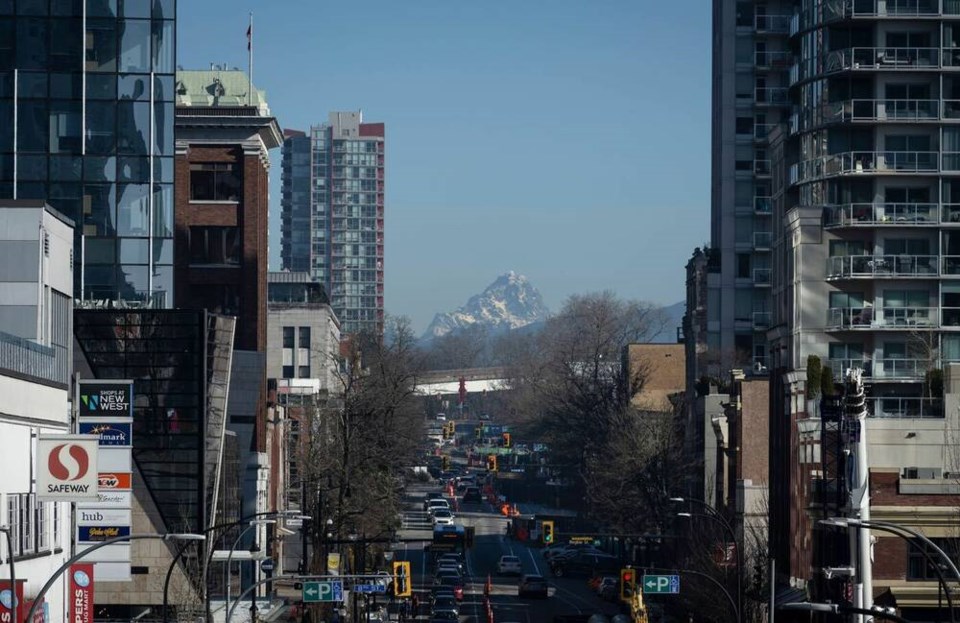Are too many dentists’ offices opening in New West?
At its April 8 meeting, council considered a motion from Coun. Nadine Nakagawa that’s aimed at ensuring that ground-level retail spaces in new developments prioritize community-supporting businesses and organizations.
“This is something that we're hearing a lot of in the community. We've had some new ground level retail open up, and people get very excited about what it's going to be,” she said. “And it's always, inevitably, a dentist’s office.”
The dentists’ offices aren’t the problem, said Nakagawa, who believes there’s a “gap in policy” that leads to the creation of retail units that are attractive to certain businesses, like dentists’ offices. She said there’s also a gap in the city regarding storefront, ground-level spaces that can support community-based organizations such as non-profits.
“And so, I think the problem is with the building of the units.”
Nakagawa said the cost of buying stratified commercial units and the cost of outfitting new spaces that are an “empty shell” contribute to the situation.
“It naturally dictates what kind of business can go into that space,” she said. “If you are a small business making homemade kombucha, you can't invest $300,000 to outfit a space.”
Nakagawa believes it’s a “perfect time” to do this kind of policy work, as the city has seen the types of businesses that are moving into new commercial spaces. She said the city also has a better understanding about the future needs of retail space in the city because of the retail strategy that was completed.
Before contemplating major projects and redevelopments, such as the visioning that’s taking place for the neighbourhood around the 22nd Street SkyTrain station, Nakagawa said she’d like the city to address “this policy gap” so storefront retail will meet the needs of the community.
In a 5-1 vote, council approve Nakagawa’s motion that the city:
- Review and refresh current policies relating to ground-level retail to ensure they’re responsive to current market forces.
- develop a policy to ensure that future ground-level retail spaces in new development are built to prioritize community-supporting business and organizations in alignment with the retail strategy.
Coun. Tasha Henderson said this is an issue that’s arisen in Sapperton.
“The current model just isn't working,” she said. “It's either leaving new commercial spaces vacant for long stretches of time, which is not helpful to the vibrancy of a neighbourhood, or it's just simply unaffordable – so they're being bought or leased by predominantly health-based businesses.”
Henderson believes it’s a good time for the city to contemplate what it can do to provide opportunities for community-supporting businesses and organizations.
“With the transit-oriented development that's coming our way there, there are lots of opportunities for redevelopment across the city, and particularly in some of our retail areas like East Columbia Street, like 12th Street, that might be facing increased pressures,” she said. “I think we really need to get this right.”
Coun. Daniel Fontaine said he’s not opposed to what’s proposed in the motion because the city is “doing it all” already as part of the implementation of its retail strategy.
Coun. Ruby Campbell said the work proposed in the motion will refine and enhance work that’s being done in by the city.
“I think that the timing on this is helpful and productive,” she said.
Campbell said community-supporting businesses and organizations includes the not-for-profit sector. She said non-profits are an important and viable sector in the community.
Fontaine said he supports non-profits but believes there are already a lot of non-profits in the downtown and other commercial districts. What’s lacking, he said, are businesses.
“I'll support this, but I want to see more small businesses down there and more restaurants, more coffee shops, more private sector/for-profit businesses within the city of New Westminster, as well as non-profits,” Fontaine said.
Coun. Paul Minhas was the lone council member to vote against Nakagawa’s motion.
“I do support all the non-profits and everything else that's already happening in downtown. There's lots of it,” he said. “But like Coun. Fontaine was saying, there isn't enough restaurants and other for-profit organizations in downtown, so I actually won't be supporting this.”
Henderson said the motion does not specify that the city is only hoping to attract non-profits.
“What this addresses is that units are unaffordable for people setting up small businesses for every kind of community-serving business – and community-serving business is certainly not limited to non-profits,” she said.
Mayor Patrick Johnstone said he likes the motion because it's not particularly prescriptive. He said the city doesn’t necessarily know at this time what policies will fix the situation, but it may include creating incentives and ensuring the right kinds of units are built in mixed-used developments.




